Frequent persons on Turkey's street signs
countries
79 names / 809 streets
Mustafa Kemal Atatürk
 117
Mustafa Kemal Atatürk, also known as Mustafa Kemal Pasha until 1921, and Ghazi Mustafa Kemal from 1921 until the Surname Law of 1934, was a Turkish field marshal, revolutionary statesman, author, and...
117
Mustafa Kemal Atatürk, also known as Mustafa Kemal Pasha until 1921, and Ghazi Mustafa Kemal from 1921 until the Surname Law of 1934, was a Turkish field marshal, revolutionary statesman, author, and...
İsmet İnönü
 42
Mustafa İsmet İnönü was a Turkish army officer and statesman who served as the second president of Turkey from November 11, 1938, to May 22 1950, and as its prime minister three times: from 1923 to...
42
Mustafa İsmet İnönü was a Turkish army officer and statesman who served as the second president of Turkey from November 11, 1938, to May 22 1950, and as its prime minister three times: from 1923 to...
Mehmed II
 39
Mehmed II, commonly known as Mehmed the Conqueror, was twice the sultan of the Ottoman Empire from August 1444 to September 1446 and then later from February 1451 to May 1481.
39
Mehmed II, commonly known as Mehmed the Conqueror, was twice the sultan of the Ottoman Empire from August 1444 to September 1446 and then later from February 1451 to May 1481.
Adnan Menderes
 30
Adnan Menderes was a Turkish politician who served as Prime Minister of Turkey between 1950 and 1960. He was one of the founders of the Democrat Party (DP) in 1946, the fourth legal opposition party...
30
Adnan Menderes was a Turkish politician who served as Prime Minister of Turkey between 1950 and 1960. He was one of the founders of the Democrat Party (DP) in 1946, the fourth legal opposition party...
Kâzım Karabekir
 30
Musa Kâzım Karabekir was a Turkish general and politician. He was the commander of the Eastern Army of the Ottoman Empire during the Turkish War of Independence, and fought a successful military...
30
Musa Kâzım Karabekir was a Turkish general and politician. He was the commander of the Eastern Army of the Ottoman Empire during the Turkish War of Independence, and fought a successful military...
Turgut Özal
 26
Halil Turgut Özal was a prominent Turkish politician, bureaucrat, engineer and statesman who served as the 8th President of Turkey from 1989 to 1993. He previously served as the 26th Prime Minister...
26
Halil Turgut Özal was a prominent Turkish politician, bureaucrat, engineer and statesman who served as the 8th President of Turkey from 1989 to 1993. He previously served as the 26th Prime Minister...
Fevzi Çakmak
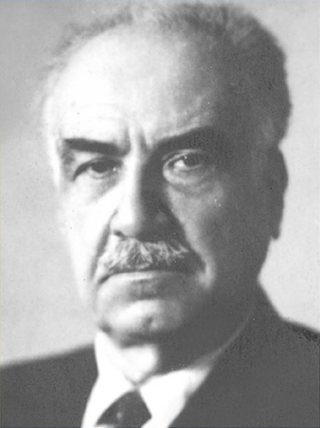 24
Mustafa Fevzi Çakmak was a Turkish field marshal (Mareşal) and politician. He served as the Chief of General Staff from 1918 and 1919 and later the Minister of War of the Ottoman Empire in 1920. He...
24
Mustafa Fevzi Çakmak was a Turkish field marshal (Mareşal) and politician. He served as the Chief of General Staff from 1918 and 1919 and later the Minister of War of the Ottoman Empire in 1920. He...
Selim I
 20
Selim I, known as Selim the Grim or Selim the Resolute, was the sultan of the Ottoman Empire from 1512 to 1520. Despite lasting only eight years, his reign is notable for the enormous expansion of...
20
Selim I, known as Selim the Grim or Selim the Resolute, was the sultan of the Ottoman Empire from 1512 to 1520. Despite lasting only eight years, his reign is notable for the enormous expansion of...
Mimar Sinan
 19
Mimar Sinan also known as Koca Mi'mâr Sinân Âğâ, was the chief Ottoman architect, engineer and mathematician for sultans Suleiman the Magnificent, Selim II and Murad III. He was responsible for the...
19
Mimar Sinan also known as Koca Mi'mâr Sinân Âğâ, was the chief Ottoman architect, engineer and mathematician for sultans Suleiman the Magnificent, Selim II and Murad III. He was responsible for the...
Hayreddin Barbarossa
 19
Hayreddin Barbarossa, also known as Hayreddin Pasha, Hızır Hayrettin Pasha, and simply Hızır Reis, was an Ottoman corsair and later admiral of the Ottoman Navy. Barbarossa's naval victories secured...
19
Hayreddin Barbarossa, also known as Hayreddin Pasha, Hızır Hayrettin Pasha, and simply Hızır Reis, was an Ottoman corsair and later admiral of the Ottoman Navy. Barbarossa's naval victories secured...
Yunus Emre
 16
Yunus Emre also known as Derviş Yûnus (1238–1320)
was a Turkish folk poet and Sufi who greatly influenced Turkish culture. The UNESCO General Conference unanimously passed a resolution declaring...
16
Yunus Emre also known as Derviş Yûnus (1238–1320)
was a Turkish folk poet and Sufi who greatly influenced Turkish culture. The UNESCO General Conference unanimously passed a resolution declaring...
Mehmet Akif Ersoy
 16
Mehmet Akif Ersoy was a Turkish poet, writer, academic, politician, and the author of the Turkish National Anthem. Widely regarded as one of the premiere literary minds of his time, Ersoy is noted...
16
Mehmet Akif Ersoy was a Turkish poet, writer, academic, politician, and the author of the Turkish National Anthem. Widely regarded as one of the premiere literary minds of his time, Ersoy is noted...
Uğur Mumcu
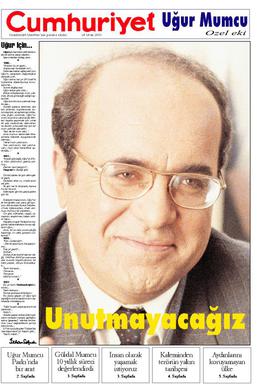 15
Uğur Mumcu was a Turkish investigative journalist for the daily Cumhuriyet. He was assassinated by a bomb placed in his car outside his home.
15
Uğur Mumcu was a Turkish investigative journalist for the daily Cumhuriyet. He was assassinated by a bomb placed in his car outside his home.
Namık Kemal
 15
Namık Kemal was an Ottoman writer, poet, democrat, intellectual, reformer, journalist, playwright, and political activist who was influential in the formation of the Young Ottomans and their struggle...
15
Namık Kemal was an Ottoman writer, poet, democrat, intellectual, reformer, journalist, playwright, and political activist who was influential in the formation of the Young Ottomans and their struggle...
Midhat Pasha
 14
Ahmed Shefik Midhat Pasha was an Ottoman politician, reformist and statesman. He was the author of the Constitution of the Ottoman Empire.
14
Ahmed Shefik Midhat Pasha was an Ottoman politician, reformist and statesman. He was the author of the Constitution of the Ottoman Empire.
Rumi
 14
Jalāl al-Dīn Muḥammad Rūmī, or simply Rumi, was a 13th-century poet, Hanafi faqih, Islamic scholar, Maturidi theologian and Sufi mystic originally from Greater Khorasan in Greater Iran.
14
Jalāl al-Dīn Muḥammad Rūmī, or simply Rumi, was a 13th-century poet, Hanafi faqih, Islamic scholar, Maturidi theologian and Sufi mystic originally from Greater Khorasan in Greater Iran.
Ahmad Yasawi
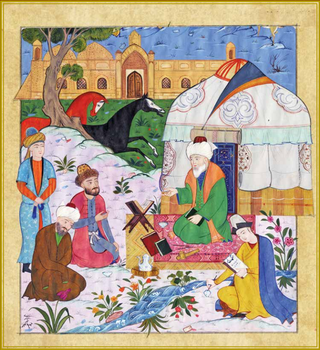 14
Ahmad Yasawi was a Turkic poet and Sufi, an early mystic who exerted a powerful influence on the development of Sufi orders throughout the Turkic-speaking world. Yasawi is the earliest known Turkic...
14
Ahmad Yasawi was a Turkic poet and Sufi, an early mystic who exerted a powerful influence on the development of Sufi orders throughout the Turkic-speaking world. Yasawi is the earliest known Turkic...
Cengiz Topel
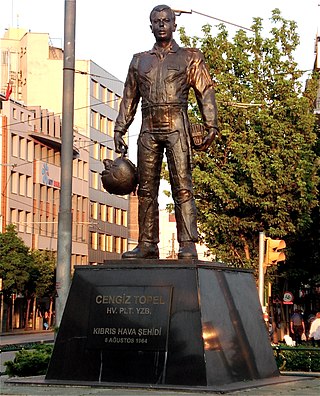 13
Cengiz Topel was a fighter pilot of the Turkish Air Force.
13
Cengiz Topel was a fighter pilot of the Turkish Air Force.
Bayezid I
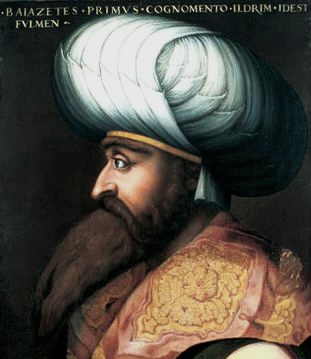 12
Bayezid I, also known as Bayezid the Thunderbolt, was the sultan of the Ottoman Empire from 1389 to 1402. He adopted the title of Sultan-i Rûm, Rûm being the Arabic name for the Eastern Roman Empire....
12
Bayezid I, also known as Bayezid the Thunderbolt, was the sultan of the Ottoman Empire from 1389 to 1402. He adopted the title of Sultan-i Rûm, Rûm being the Arabic name for the Eastern Roman Empire....
Turan Güneş
 11
Turan Güneş was a Turkish academic and politician who served as the minister of foreign affairs and deputy prime minister in the 1970s. He started his political career in the Democrat Party (DP), but...
11
Turan Güneş was a Turkish academic and politician who served as the minister of foreign affairs and deputy prime minister in the 1970s. He started his political career in the Democrat Party (DP), but...
Ziya Gökalp
 11
Mehmet Ziya Gökalp was a Turkish sociologist, writer, poet, and politician. After the 1908 Young Turk Revolution that reinstated constitutionalism in the Ottoman Empire, he adopted the pen name...
11
Mehmet Ziya Gökalp was a Turkish sociologist, writer, poet, and politician. After the 1908 Young Turk Revolution that reinstated constitutionalism in the Ottoman Empire, he adopted the pen name...
Bülent Ecevit
 11
Mustafa Bülent Ecevit was a Turkish politician, statesman, poet, writer, scholar, and journalist, who served as the Prime Minister of Turkey four times between 1974 and 2002. He served as prime...
11
Mustafa Bülent Ecevit was a Turkish politician, statesman, poet, writer, scholar, and journalist, who served as the Prime Minister of Turkey four times between 1974 and 2002. He served as prime...
Paruyr Sevak
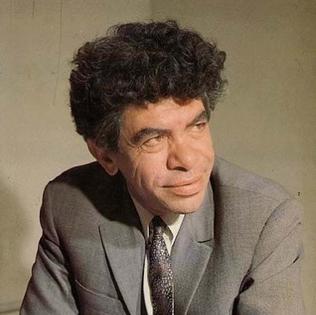 11
Paruyr Sevak was an Armenian poet, translator and literary critic. He is considered one of the greatest Armenian poets of the 20th century.
11
Paruyr Sevak was an Armenian poet, translator and literary critic. He is considered one of the greatest Armenian poets of the 20th century.
Adnan Kahveci
 9
Adnan Kahveci was a noted Turkish politician who served as a key advisor to Prime Minister Turgut Özal throughout the 1980s. He was one of the founders in 1983 of the Motherland Party (ANAP) led by...
9
Adnan Kahveci was a noted Turkish politician who served as a key advisor to Prime Minister Turgut Özal throughout the 1980s. He was one of the founders in 1983 of the Motherland Party (ANAP) led by...
Talaat Pasha
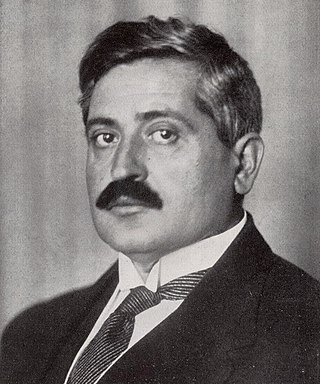 9
Mehmed Talaat, commonly known as Talaat Pasha or Talat Pasha, was an Ottoman Young Turk activist, politician, and convicted war criminal who served as the de facto leader of the Ottoman Empire from...
9
Mehmed Talaat, commonly known as Talaat Pasha or Talat Pasha, was an Ottoman Young Turk activist, politician, and convicted war criminal who served as the de facto leader of the Ottoman Empire from...
Muhsin Yazıcıoğlu
 9
Muhsin Yazıcıoğlu was a Turkish politician and member of the Parliament of Turkey. He was the leader and founder of the Great Union Party (BBP), a right-wing, nationalist-Islamist political party.
9
Muhsin Yazıcıoğlu was a Turkish politician and member of the Parliament of Turkey. He was the leader and founder of the Great Union Party (BBP), a right-wing, nationalist-Islamist political party.
Owais al-Qarani
 8
Owais al-Qarani, also spelled Uways or Owais, was a Muslim from South Arabia who lived during the lifetime of the Islamic prophet Muhammad.
8
Owais al-Qarani, also spelled Uways or Owais, was a Muslim from South Arabia who lived during the lifetime of the Islamic prophet Muhammad.
Abdi İpekçi
 8
Abdi İpekçi was a Turkish journalist, intellectual and an activist for human rights. He was murdered while editor-in-chief of one of the main Turkish daily newspapers Milliyet which then had a...
8
Abdi İpekçi was a Turkish journalist, intellectual and an activist for human rights. He was murdered while editor-in-chief of one of the main Turkish daily newspapers Milliyet which then had a...
Muammer Aksoy
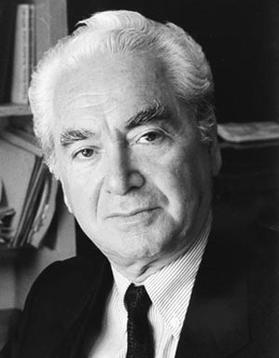 8
Muammer Aksoy was a Turkish lawyer, politician, columnist and intellectual who was assassinated.
8
Muammer Aksoy was a Turkish lawyer, politician, columnist and intellectual who was assassinated.
Yeghishe Charents
 8
Yeghishe Charents was an Armenian poet, writer and public activist. Charents' literary subject matter ranged from his experiences in the First World War, the Russian Revolution, and frequently...
8
Yeghishe Charents was an Armenian poet, writer and public activist. Charents' literary subject matter ranged from his experiences in the First World War, the Russian Revolution, and frequently...
Zübeyde Hanım
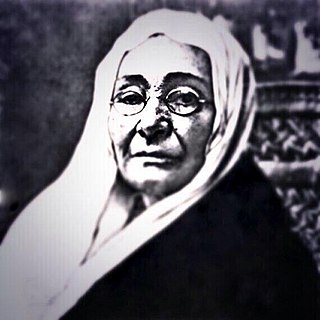 7
Zübeyde Hanım was the mother of Mustafa Kemal Atatürk, the founder of the Republic of Turkey. She was the only daughter of the Hacısofular family which included her two brothers. Zübeyde was born in...
7
Zübeyde Hanım was the mother of Mustafa Kemal Atatürk, the founder of the Republic of Turkey. She was the only daughter of the Hacısofular family which included her two brothers. Zübeyde was born in...
Sadik Achmet
 7
Sadik Achmet was a Greek doctor of medicine and politician of Turkish ethnicity. He founded the Party of Friendship, Equality and Peace.
7
Sadik Achmet was a Greek doctor of medicine and politician of Turkish ethnicity. He founded the Party of Friendship, Equality and Peace.
Cemal Gürsel
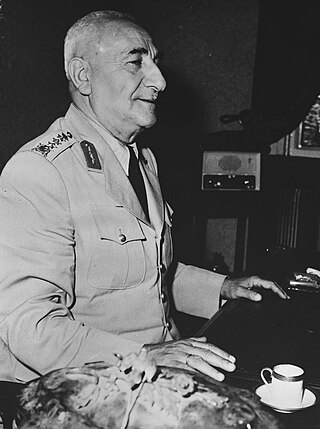 7
Cemal Gürsel was a Turkish military officer and politician who was the 4th president of Turkey, serving from 1960 to 1966 after taking power in a coup d'état.
7
Cemal Gürsel was a Turkish military officer and politician who was the 4th president of Turkey, serving from 1960 to 1966 after taking power in a coup d'état.
Süleyman Demirel
 7
Sami Süleyman Gündoğdu Demirel was a Turkish politician, engineer, and statesman who served as the 9th President of Turkey from 1993 to 2000. He previously served as the Prime Minister of Turkey...
7
Sami Süleyman Gündoğdu Demirel was a Turkish politician, engineer, and statesman who served as the 9th President of Turkey from 1993 to 2000. He previously served as the Prime Minister of Turkey...
Osman Nuri Pasha
 6
Osman Nuri Pasha, also known as Gazi Osman Pasha, was an Ottoman field marshal. Being one of the most respected and decorated Ottoman pashas of all time, many songs have been written for him, and...
6
Osman Nuri Pasha, also known as Gazi Osman Pasha, was an Ottoman field marshal. Being one of the most respected and decorated Ottoman pashas of all time, many songs have been written for him, and...
Âşık Veysel
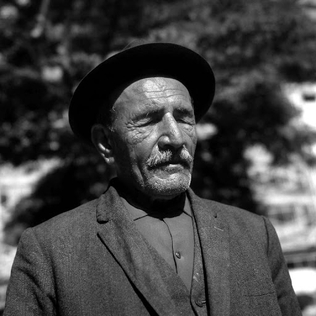 6
Âşık Veysel was a Turkish Alevi ashik, bağlama virtuoso, and folk poet. He was born and died in the village of Sivrialan, Sivas Province, in the Ottoman Empire. Blind since the age of 7, Veysel's...
6
Âşık Veysel was a Turkish Alevi ashik, bağlama virtuoso, and folk poet. He was born and died in the village of Sivrialan, Sivas Province, in the Ottoman Empire. Blind since the age of 7, Veysel's...
Yılmaz Güney
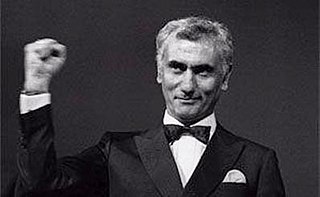 6
Yılmaz Güney was a Kurdish film director, screenwriter, novelist, actor and communist political activist. He quickly rose to prominence in the Turkish film industry. Many of his works were made from...
6
Yılmaz Güney was a Kurdish film director, screenwriter, novelist, actor and communist political activist. He quickly rose to prominence in the Turkish film industry. Many of his works were made from...
Alparslan Türkeş
 6
Alparslan Türkeş was a Turkish politician, who was the founder and president of the Nationalist Movement Party (MHP) and the Grey Wolves (Ülkü Ocakları). He ran the Grey Wolves training camps from...
6
Alparslan Türkeş was a Turkish politician, who was the founder and president of the Nationalist Movement Party (MHP) and the Grey Wolves (Ülkü Ocakları). He ran the Grey Wolves training camps from...
Necip Fazıl Kısakürek
 6
Ahmet Necip Kısakürek, Türk şair, romancı, oyun yazarı ve İslamcı ideolog.
6
Ahmet Necip Kısakürek, Türk şair, romancı, oyun yazarı ve İslamcı ideolog.
Garegin Nzhdeh
 6
Garegin Ter-Harutyunyan, better known by his nom de guerre Garegin Nzhdeh, was an Armenian statesman, military commander and nationalist political thinker. As a member of the Armenian Revolutionary...
6
Garegin Ter-Harutyunyan, better known by his nom de guerre Garegin Nzhdeh, was an Armenian statesman, military commander and nationalist political thinker. As a member of the Armenian Revolutionary...
Avetik Isahakyan
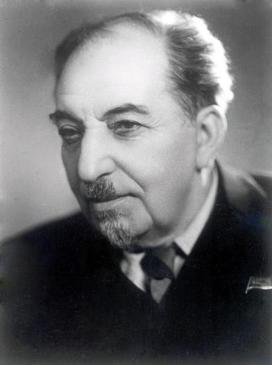 6
Avetik Sahaki Isahakyan was a prominent Armenian lyric poet, writer and public activist.
6
Avetik Sahaki Isahakyan was a prominent Armenian lyric poet, writer and public activist.
Nene Hatun
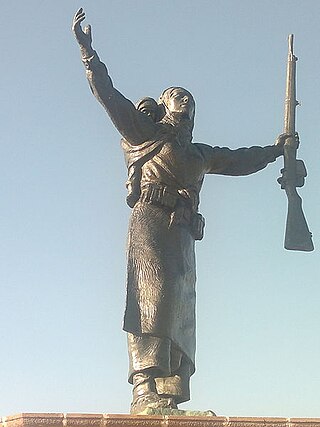 5
Nene Hatun was a Turkish folk hero, who became known for fighting against Russian forces during the recapture of Fort Aziziye in Erzurum from Russian forces at the start of the Russo-Turkish War of...
5
Nene Hatun was a Turkish folk hero, who became known for fighting against Russian forces during the recapture of Fort Aziziye in Erzurum from Russian forces at the start of the Russo-Turkish War of...
Şehzade Cihangir
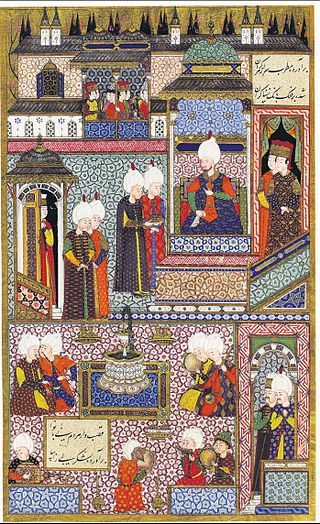 5
Şehzade Cihangir was an Ottoman prince, the sixth and youngest child of Sultan Suleiman the Magnificent and his wife Hürrem Sultan.
5
Şehzade Cihangir was an Ottoman prince, the sixth and youngest child of Sultan Suleiman the Magnificent and his wife Hürrem Sultan.
Nâzım Hikmet
 5
Mehmed Nâzım Ran, commonly known as Nâzım Hikmet, was a Turkish poet, playwright, novelist, screenwriter, director, and memoirist. He was acclaimed for the "lyrical flow of his statements". Described...
5
Mehmed Nâzım Ran, commonly known as Nâzım Hikmet, was a Turkish poet, playwright, novelist, screenwriter, director, and memoirist. He was acclaimed for the "lyrical flow of his statements". Described...
Abu Ayyub al-Ansari
 5
Abu Ayyub al-Ansari — born Khalid ibn Zayd ibn Kulayb ibn Tha'laba in Yathrib — was from the tribe of Banu Najjar, was a close companion and the standard-bearer of the Islamic prophet Muhammad. Abu...
5
Abu Ayyub al-Ansari — born Khalid ibn Zayd ibn Kulayb ibn Tha'laba in Yathrib — was from the tribe of Banu Najjar, was a close companion and the standard-bearer of the Islamic prophet Muhammad. Abu...
Osman I
 5
Osman I or Osman Ghazi was the founder of the Ottoman Empire. While initially a small Turkoman principality during Osman's lifetime, his beylik transformed into a world empire in the centuries after...
5
Osman I or Osman Ghazi was the founder of the Ottoman Empire. While initially a small Turkoman principality during Osman's lifetime, his beylik transformed into a world empire in the centuries after...
Avicenna
 5
Ibn Sina, commonly known in the West as Avicenna, was a preeminent philosopher and physician of the Muslim world, flourishing during the Islamic Golden Age, serving in the courts of various Iranian...
5
Ibn Sina, commonly known in the West as Avicenna, was a preeminent philosopher and physician of the Muslim world, flourishing during the Islamic Golden Age, serving in the courts of various Iranian...
Evliya Çelebi
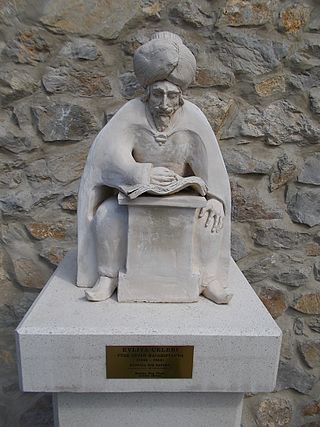 5
Dervish Mehmed Zillî, known as Evliya Çelebi, was an Ottoman explorer who travelled through the territory of the Ottoman Empire and neighboring lands during the empire's cultural zenith. He travelled...
5
Dervish Mehmed Zillî, known as Evliya Çelebi, was an Ottoman explorer who travelled through the territory of the Ottoman Empire and neighboring lands during the empire's cultural zenith. He travelled...
Hovhannes Tumanyan
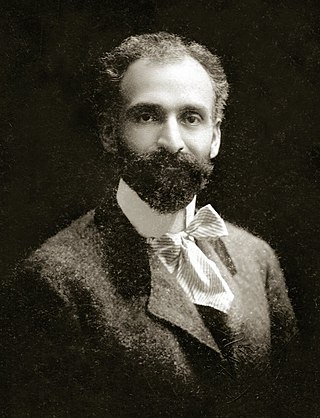 5
Hovhannes Tumanyan was an Armenian poet, writer, translator, and literary and public activist. He is the national poet of Armenia.
5
Hovhannes Tumanyan was an Armenian poet, writer, translator, and literary and public activist. He is the national poet of Armenia.
Saladin
 4
Salah ad-Din Yusuf ibn Ayyub, commonly known as Saladin, was the founder of the Ayyubid dynasty. Hailing from a Kurdish family, he was the first sultan of both Egypt and Syria. An important figure of...
4
Salah ad-Din Yusuf ibn Ayyub, commonly known as Saladin, was the founder of the Ayyubid dynasty. Hailing from a Kurdish family, he was the first sultan of both Egypt and Syria. An important figure of...
John F. Kennedy
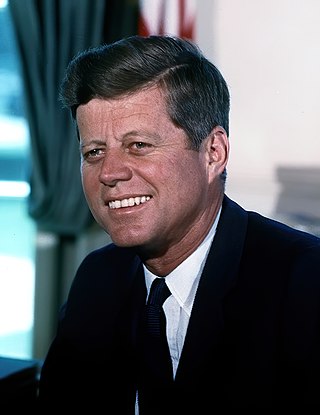 4
John Fitzgerald Kennedy, often referred to as JFK, was an American politician who served as the 35th president of the United States from 1961 until his assassination in 1963. He was the youngest...
4
John Fitzgerald Kennedy, often referred to as JFK, was an American politician who served as the 35th president of the United States from 1961 until his assassination in 1963. He was the youngest...
Ahmet Kaya
 4
Ahmed Kaya was a Turkish–Kurdish folk singer. Kaya was persecuted by Turkish nationalist celebrities and authorities. Kaya left Turkey in an act of self-exile, and moved to France, where he would...
4
Ahmed Kaya was a Turkish–Kurdish folk singer. Kaya was persecuted by Turkish nationalist celebrities and authorities. Kaya left Turkey in an act of self-exile, and moved to France, where he would...
Kenan Evren
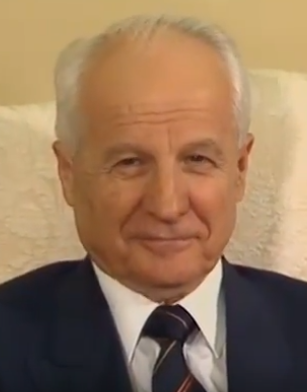 4
Ahmet Kenan Evren was a Turkish politician and military officer who served as the seventh President of Turkey from 1980 to 1989. He assumed the post by leading the 1980 military coup.
4
Ahmet Kenan Evren was a Turkish politician and military officer who served as the seventh President of Turkey from 1980 to 1989. He assumed the post by leading the 1980 military coup.
Refik Saydam
 4
İbrahim Refik Saydam was a Turkish physician, politician and the fourth Prime Minister of Turkey, serving from 25 January 1939 until his death on 8 July 1942.
4
İbrahim Refik Saydam was a Turkish physician, politician and the fourth Prime Minister of Turkey, serving from 25 January 1939 until his death on 8 July 1942.
Ali Çetinkaya
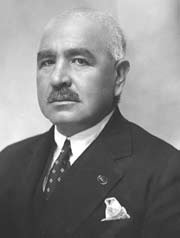 4
Ali Çetinkaya, also known as "Kel" Ali Bey was an Ottoman-born Turkish army officer and politician, who served eight terms in the Grand National Assembly of Turkey, including a period in 1939–40 as...
4
Ali Çetinkaya, also known as "Kel" Ali Bey was an Ottoman-born Turkish army officer and politician, who served eight terms in the Grand National Assembly of Turkey, including a period in 1939–40 as...
Orhan
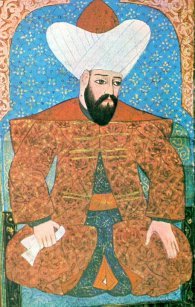 4
Orhan Ghazi was the second sultan of the Ottoman Empire from 1323/4 to 1362. He was born in Söğüt, as the son of Osman I.
4
Orhan Ghazi was the second sultan of the Ottoman Empire from 1323/4 to 1362. He was born in Söğüt, as the son of Osman I.
Imam Shamil
 4
Imam Shamil was the political, military, and spiritual leader of North Caucasian resistance to Imperial Russia in the 1800s, the third Imam of the Caucasian Imamate (1840–1859), and a Sunni Muslim...
4
Imam Shamil was the political, military, and spiritual leader of North Caucasian resistance to Imperial Russia in the 1800s, the third Imam of the Caucasian Imamate (1840–1859), and a Sunni Muslim...
Piri Reis
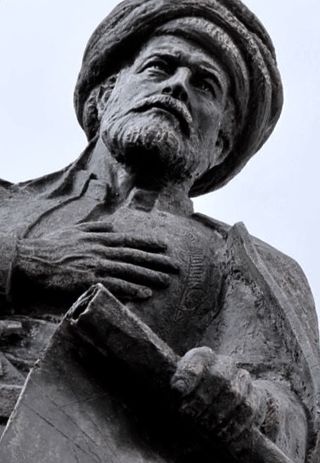 4
Ahmed Muhiddin Piri, better known as Piri Reis, was an Ottoman navigator, geographer and cartographer. He is primarily known today for his maps and charts collected in his Kitab-ı Bahriye, a book...
4
Ahmed Muhiddin Piri, better known as Piri Reis, was an Ottoman navigator, geographer and cartographer. He is primarily known today for his maps and charts collected in his Kitab-ı Bahriye, a book...
Hovhannes Shiraz
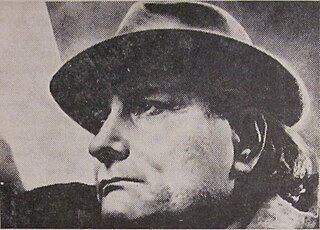 4
Hovhannes Shiraz was an Armenian poet.
4
Hovhannes Shiraz was an Armenian poet.
Andranik
 4
Andranik Ozanian, commonly known as General Andranik or simply Andranik;, was an Armenian military commander and statesman, the best known fedayi and a key figure of the Armenian national liberation...
4
Andranik Ozanian, commonly known as General Andranik or simply Andranik;, was an Armenian military commander and statesman, the best known fedayi and a key figure of the Armenian national liberation...
Süleyman Seba
 3
Süleyman Seba was a Turkish football player of Abkhazian origin and was the longest presiding Chairman of the Istanbul based multisports club Beşiktaş J.K. He was also an intelligence officer for...
3
Süleyman Seba was a Turkish football player of Abkhazian origin and was the longest presiding Chairman of the Istanbul based multisports club Beşiktaş J.K. He was also an intelligence officer for...
Ahmet Tokuş
 3
Ahmet Tokuş, Türk siyasetçidir.
3
Ahmet Tokuş, Türk siyasetçidir.
Yaşar Kemal
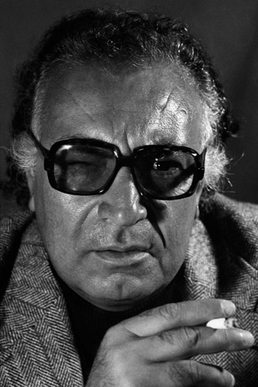 3
Yaşar Kemal was a Turkish writer of Kurdish origin and human rights activist and one of Turkey's leading authors. He received 38 awards during his lifetime and had been a candidate for the Nobel...
3
Yaşar Kemal was a Turkish writer of Kurdish origin and human rights activist and one of Turkey's leading authors. He received 38 awards during his lifetime and had been a candidate for the Nobel...
Osman Kavuncu
 3
Osman Kavuncu, Türk siyasetçi. 9 Eylül 1950 - 7 Şubat 1954 ve 7 Şubat 1954 - 17 Eylül 1957 tarihleri arasında, iki dönem Kayseri Belediye Başkanlığı yaptı.
3
Osman Kavuncu, Türk siyasetçi. 9 Eylül 1950 - 7 Şubat 1954 ve 7 Şubat 1954 - 17 Eylül 1957 tarihleri arasında, iki dönem Kayseri Belediye Başkanlığı yaptı.
Orhan Doğan
 3
Orhan Doğan was a Kurdish human rights lawyer and politician of the Democratic Society Party.
3
Orhan Doğan was a Kurdish human rights lawyer and politician of the Democratic Society Party.
Piali Pasha
 3
Piali Pasha was an Ottoman Grand Admiral between 1553 and 1567, and a Vizier (minister) after 1568. He is also known as Piale Pasha in English.
3
Piali Pasha was an Ottoman Grand Admiral between 1553 and 1567, and a Vizier (minister) after 1568. He is also known as Piale Pasha in English.
Yaşar Doğu
 3
Yaşar Doğu was a Turkish wrestler. He competed in freestyle and Greco-Roman wrestling, winning gold at the Olympic, world, and European championships.
3
Yaşar Doğu was a Turkish wrestler. He competed in freestyle and Greco-Roman wrestling, winning gold at the Olympic, world, and European championships.
Ahmed Vefik Pasha
 3
Ahmed Vefik Pasha was an Ottoman statesman, diplomat, scholar, playwright, and translator during the Tanzimat and First Constitutional Era periods. He was commissioned with top-rank governmental...
3
Ahmed Vefik Pasha was an Ottoman statesman, diplomat, scholar, playwright, and translator during the Tanzimat and First Constitutional Era periods. He was commissioned with top-rank governmental...
Ali Fuat Cebesoy
 3
Ali Fuat Cebesoy was a Turkish military officer who served in the Ottoman Army and then in the Turkish army and politician.
3
Ali Fuat Cebesoy was a Turkish military officer who served in the Ottoman Army and then in the Turkish army and politician.
Al-Farabi
 3
Abu Nasr Muhammad al-Farabi, known in the Latin West as Alpharabius, was an early Islamic philosopher and music theorist. He has been designated as "Father of Islamic Neoplatonism", and the "Founder...
3
Abu Nasr Muhammad al-Farabi, known in the Latin West as Alpharabius, was an early Islamic philosopher and music theorist. He has been designated as "Father of Islamic Neoplatonism", and the "Founder...
Şemsettin Günaltay
 3
Mehmet Şemsettin Günaltay was a Turkish historian, politician, and Prime Minister of Turkey from 1949 to 1950.
3
Mehmet Şemsettin Günaltay was a Turkish historian, politician, and Prime Minister of Turkey from 1949 to 1950.
Sokollu Mehmed Pasha
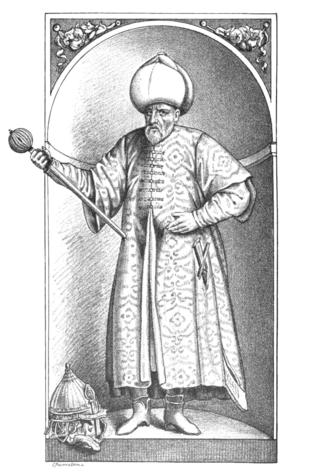 3
Sokollu Mehmed Pasha was an Ottoman statesman of Serbian origin most notable for being the Grand Vizier of the Ottoman Empire. Born in Ottoman Herzegovina into an Orthodox Christian family, Mehmed...
3
Sokollu Mehmed Pasha was an Ottoman statesman of Serbian origin most notable for being the Grand Vizier of the Ottoman Empire. Born in Ottoman Herzegovina into an Orthodox Christian family, Mehmed...
Ertuğrul
 3
Ertuğrul or Ertuğrul Ghazi was a 13th-century bey, who was the father of Osman I. Little is known about Ertuğrul's life. According to Ottoman tradition, he was the son of Suleyman Shah, the leader of...
3
Ertuğrul or Ertuğrul Ghazi was a 13th-century bey, who was the father of Osman I. Little is known about Ertuğrul's life. According to Ottoman tradition, he was the son of Suleyman Shah, the leader of...
Rauf Denktaş
 3
Rauf Raif Denktaş was a Turkish Cypriot politician, barrister and jurist who served as the founding president of Northern Cyprus. He occupied this position as the president of the Turkish Republic of...
3
Rauf Raif Denktaş was a Turkish Cypriot politician, barrister and jurist who served as the founding president of Northern Cyprus. He occupied this position as the president of the Turkish Republic of...
Tevfik Fikret
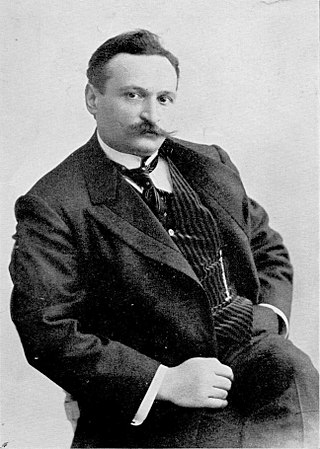 3
Tevfik Fikret was the pseudonym of Mehmed Tevfik, an Ottoman educator and poet, who is considered the founder of the modern school of Turkish poetry.
3
Tevfik Fikret was the pseudonym of Mehmed Tevfik, an Ottoman educator and poet, who is considered the founder of the modern school of Turkish poetry.
Çetin Emeç
 3
Çetin Emeç was a prominent Turkish journalist and columnist, who was assassinated.
3
Çetin Emeç was a prominent Turkish journalist and columnist, who was assassinated.
Halide Edib Adıvar
 3
Halide Edib Adıvar was a Turkish novelist, teacher, and a nationalist and feminist intellectual. She was best known for her novels criticizing the low social status of Turkish women and what she saw...
3
Halide Edib Adıvar was a Turkish novelist, teacher, and a nationalist and feminist intellectual. She was best known for her novels criticizing the low social status of Turkish women and what she saw...
Salih Omurtak
 3
Salih Omurtak was a Turkish general and the fourth Chief of the General Staff of the Turkish Armed Forces.
3
Salih Omurtak was a Turkish general and the fourth Chief of the General Staff of the Turkish Armed Forces.
Yahya Kemal Beyatlı
 3
Yahya Kemal Beyatlı, born Ahmet Âgâh, generally known by the pen name Yahya Kemal, was a leading Turkish poet and author, as well as a politician and diplomat.
3
Yahya Kemal Beyatlı, born Ahmet Âgâh, generally known by the pen name Yahya Kemal, was a leading Turkish poet and author, as well as a politician and diplomat.